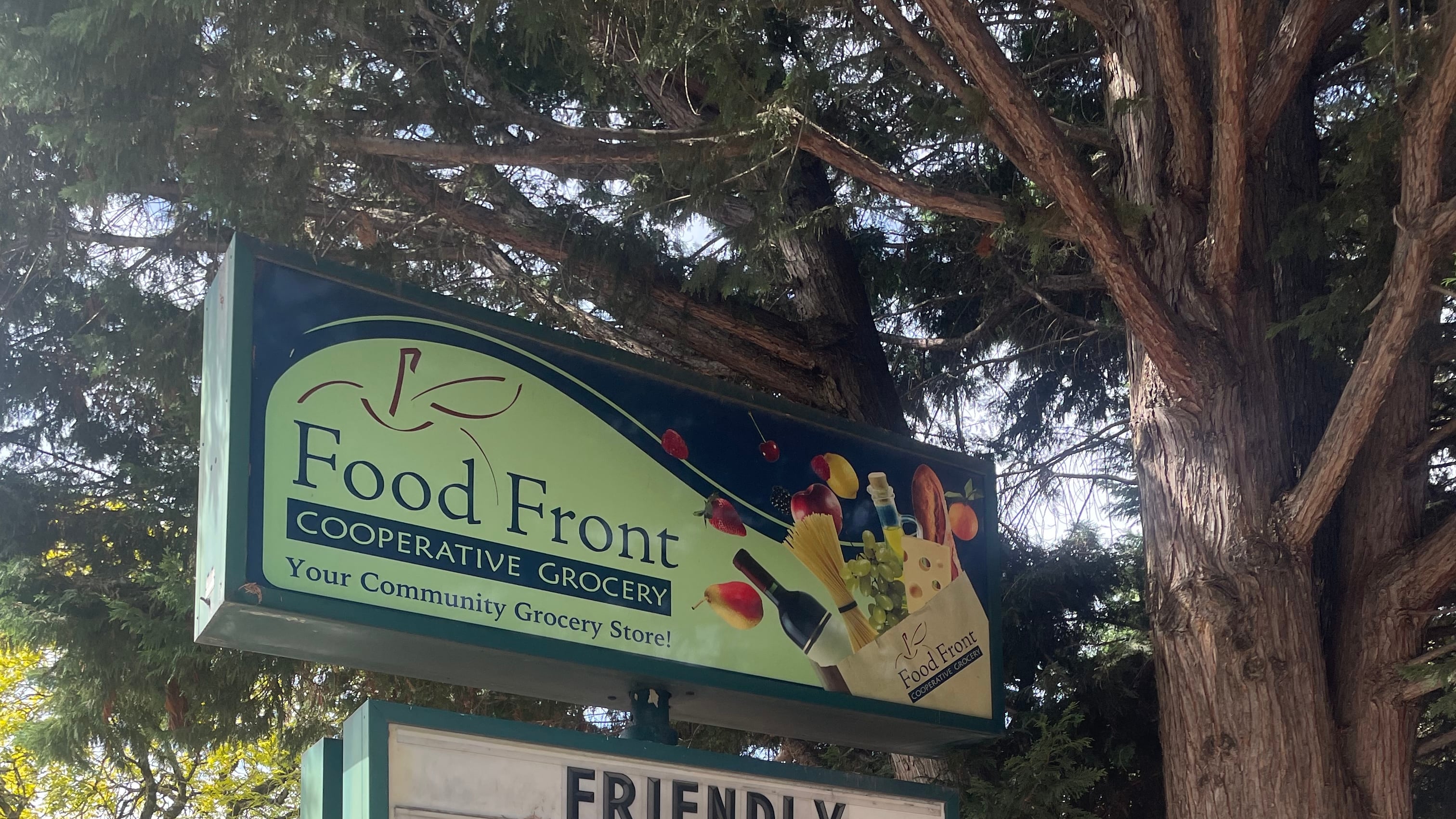- Address: 2375 NW Thurman St.
- Year built: 1924
- Square footage: 15,200 (property)
- Market value: $3.38 million
- Owner: The Real Good Food Store, Inc.
- How Long It’s Been Empty: 1.5 years
- First examined by WW: Aug. 17, 2023
- Why It’s Empty: Competition
In the two years since WW started examining the reasons that properties might sit empty in a city desperately short of housing, no property has appeared twice—until now.
But the battle raging over the disposition of a shuttered nonprofit grocery store the Northwest District might be hotter (at least in its immediate radius) than the fight over whether Kroger and Safeway should merge.
There are a couple of reasons we’re revisiting the building once home to Food Front, the co-op founded in 1972 that closed April 24, 2023. First, Food Front embodies the values of a storied era in the city’s history.
In her book Portland: People, Politics, and Power: 1851-2001, author Jewel Lansing cites Food Front’s founding year as a turning point. “The makeup of city council was already changing from ‘the aging Caucasian male’ model, and was about to become even more diverse in age, gender and race,” Lansing writes.
For many of the Portlanders who paid the $150 fee to become a Food Front owner, the store evokes a time when hippies ruled the city and Amazon/Whole Foods owner Jeff Bezos was still in elementary school. “If you go back 40 years, nobody really sold organic groceries,” says Dan Anderson, who joined Food Front in 1986 and whose family loaned the co-op money in recent years to try to keep it afloat.
But today Anderson and a handful of dissidents are fighting to block the proposed $2.55 million sale of Food Front’s property to K-5 Urban Holdings LLC, which invests in and manages real estate.
Critics of the proposed sale—which, according to the Food Front board, is still in the letter-of-intent stage and not final—fear that K-5, which owns three adjacent homes, wants to scrape the store and the houses and develop apartments. (K-5 did not respond to a request for comment.)
That’s a common and often valid concern in desirable neighborhoods where large parcels of property are scarce. But there’s a big difference between Food Front and other places where development foes have rallied: Food Front has a lot of owners—thousands of them.
Just what those owners want has been an issue since the store closed. The volunteer board, which has seen heavy turnover, has tried through board surveys to assess members’ interests.
Current board president Roman Shvarts says it’s a tricky process because Food Front’s database contains more than 14,000 names. Many of those names, however, belong to people who have died, moved away or otherwise lost interest. Initial surveys showed that those members who responded were most interested in preserving a grocery store on the premises.
Shvarts says the board fielded an offer from one: Market of Choice, which offered $1.9 million for the property last November. But that proved to be far lower than the $2.7 million appraisal the board subsequently obtained. Other possibilities, including a Providore-like gourmet foods store and a headquarters for Por Qué No Taqueria, failed to gain traction.
After other options fizzled, Market of Choice reportedly renewed its offer in May, but Shvarts says the Eugene-based grocer would not pay more.
“Had they been close to the appraised value, we might be having a different conversation,” Shvarts says. “Some owners don’t care what we sell for if there’s a market in the space. Some people just want a market. But we have a duty to all owners.”
Shvarts and board secretary/treasurer Kate Fulton say K-5 convinced the board the company would make good-faith efforts to lease the building a grocery store.

In July, the board put the matter to a vote of members. The results? Shvarts and Fulton say that 436 members cast votes and more than 90% voted to sell to K-5.
Anderson and the dissidents see it differently. They point to the more than 14,000 names in Food Front’s database and say the vote reflects a tiny fraction of membership. They also note that the ballots contained only a binary question—whether sell to K-5 or not—rather than preserving other options. “The board’s commitment to a robust and open process is not particularly strong,” Anderson says.
The board disagrees, saying its been engaged with the community since the store’s closure and the vote is a fair representation of members’ wishes. “This is a democratic organization, and I think people have to realize that sometimes the majority doesn’t agree with you,” Fulton says.
As the board negotiates the terms of the sale to K-5, the clock is ticking. Last year the board borrowed $1 million from a hard-money lender to pay off existing debt. But the new loan will consume the co-op’s remaining cash by the middle of next summer. And it has no income.
Last month a team of thieves (neighbors got photos) climbed up on the roof and stripped the copper out of the refrigeration system, doing nearly $100,000 worth of damage.
Shvarts says the feedback the board continues to receive shows the emotional attachment Food Front members have to the co-op’s past. “People are trying to undermine the board and other members’ vote,” he says. “But we don’t see any reason not to proceed.”
Every week, WW examines one mysteriously vacant property in the city of Portland, explains why it’s empty and considers what might arrive there next. Send addresses to newstips@wweek.com.

